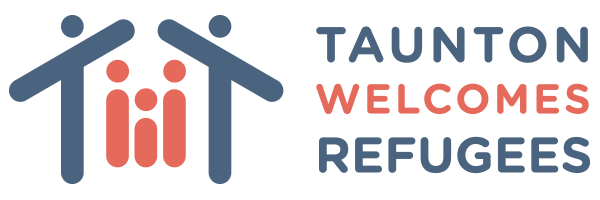Refugee Resettlement
The number of refugees resettled in safe countries during 2020 is on course to be the lowest in almost two decades, according to UNHCR. Between January and September, only 15,425 refugees were resettled, compared to over 50,000 during the same period last year. The total for the entire year will be about 50,000, with COVID-19 causing delays in departures. Many families had sold their possessions in preparation for their relocation, but have subsequently been stranded. The UNHCR is urging countries to restart programmes and resettle as many refugees as possible before the end of the year. (UNHCR Oct 23rd 2020)
COVID-19 vaccine donation to conflict zones
Public health groups are lobbying developed countries to donate a portion of their COVID-19 vaccine supplies to a “humanitarian buffer” that would be used to inoculate people living in conflict zones and refugee camps. The creation of a stockpile was announced by WHO, and UNICEF has begun buying and pre-positioning half a billion syringes for administering COVID-19 vaccines. (The Guardian Nov 20th 2020)
Idlib District, Syria
A medical officer stated that ‘nobody knows how bad the Covid outbreak is’ at Atmeh Refugee Camp, Idlib Province, as it was believed only a small proportion of those infected had presented themselves for testing. Of those who had been tested, 40% had a positive result. (BBC News Oct 27th 2020)
There are rising levels of malnutrition among children in the province, where 1 million are still displaced from their homes. Rising food prices, the economic impacts of COVID-19 and the devaluation of the Syrian pound mean that families living in the camps struggle to afford baby formula and other foods. (UNHCR 30th Oct)
Immediate Closure of Refugee Camps in Iraq may leave 100,000 homeless
Many refugee camps in Iraq for nationals displaced by the onslaught of ISIL (ISIS) in 2014 are being closed, with the expectation that residents can now return home. In the Baghdad-controlled areas camps are closing this month and those in Kurdish areas in 2021, because the Iraqi government believes that people are ‘no longer endangered by an active conflict’. Since 18th October the closure of 10 camps in the Baghdad, Kerbala, Diyala, Anbar, Ninewa and Kirkuk Governates has been announced, affecting 48,000 people. Some families report that they were only being given two days’ notice to leave. Some have already tried to return home, but have found that they are received with hostility and suspicion, for fear they have ISIL connections. Others have found that their homes have been destroyed, or occupied by others. As a result many are relocating to other camps which have yet to close. More than six million Iraqis fled their homes during the conflict, which officially ended in December 2017. The International Organisation for Migration estimates that 1.3 million remain displaced, and half of those who have returned live in ‘severe’ conditions. (BBC News Nov 9th, UNHCR Nov 13th, Aljazeera Dec 2nd)
Fighting in Afghanistan
While the Taliban and the Afghan government have been engaged in talks since September, attacks against Afghan forces and civilians have increased. It is believed that at least 5,000 families in Helmand Province have fled in the last month, with most now living in the open air in the provincial capital of Lashkar Gah. In addition 12 health facilities have come under attack. Fighting also broke out in the northern province of Takhar where a Taliban attack in the Baharak district, was followed by an air strike on a religious school that left at least 12 people dead, according to local officials. (UNHCR 23rd Oct, Nov 13th)
More Deaths on the Sea Crossings
The deaths of five members of one family, including three children, in the Channel recently have prompted renewed calls for safe and legal routes to be opened up for asylum-seekers trying to reach the UK. The family, who were from Iran, reportedly paid a smuggler to take them by boat, after two failed attempts to reach the UK by train. More than 7,400 people have arrived to the UK from France in small boats this year; nearly four times as many as in 2019, while eight have died attempting the crossing. (UNHCR 23rd Oct)
Meanwhile, in early November four shipwrecks off Libyan coast left over 110 dead in three days. In the most serious incident, at least 74 people are believed to have drowned off the coast of Al Khums, east of Tripoli, with 47 survivors rescued by the Libyan Coast Guard and fishermen. Three women were the only survivors of another shipwreck off the coast of Surman, in Libya. Elsewhere, the Spanish NGO ‘Open Arms’ rescued over 100 people from the water, but 6 people died, including a 6-month-old baby boy. In the fourth incident, another child was among 14 people who drowned off Libya’s coast. (UNHCR 13th Nov)
And finally
More than 43,000 refugees have crossed into eastern Sudan since fighting started in Ethiopia’s northern Tigray region in early November, where the UNHCR is struggling to set up camps for them. Food supplies for the 96,000 Eritrean refugees already in the region are also at risk. (UNHCR 27th Nov)
LM December 2020
